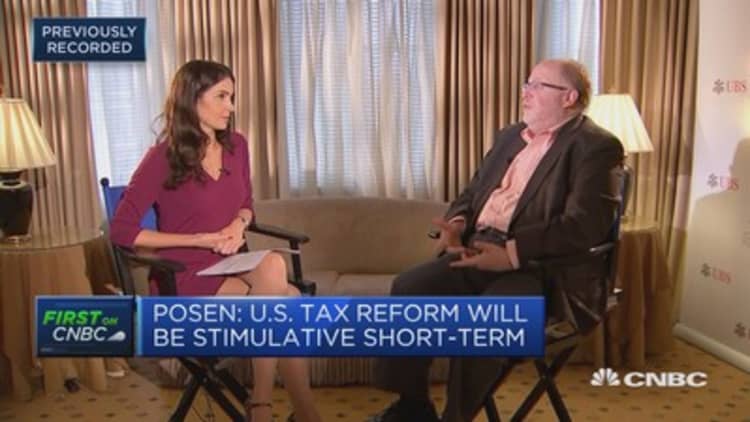
Sterling is likely to further weaken amid increasing political instability and sluggish Brexit negotiations, according to a leading economist.
Adam Posen, president of the Peterson Institute for International Economics and a former member of the Bank of England's monetary policy committee, told CNBC on Tuesday that a decline in the pound is to be expected.
The pound has steadily weakened against major currencies since the U.K.'s vote in June 2016 to leave the European Union (EU). This is largely due to political instability surrounding Theresa May's leadership and poor progress made in Brexit negotiations with EU officials.
Posen said that sterling would continue to weaken due to fundamentals, and not just the poor progress made by Brexit negotiations so far.
"The day-to-day, month-to-month movements (in the pound) will focus on the everyday (Brexit) negotiations," he said. "But for the British people and the British economy going out more than six months, what's going to happen is a decline in the pound.
"Irrespective of how negotiations go, the U.K. is making itself less competitive with its largest trading partner, it's shutting down economies of scale where 50 percent of its exports go."

The U.K. faces possible tariffs on trade with the EU unless a deal is reached, Posen noted, adding that there were three key reasons why sterling would decline.
He said: "Inherently, you combine that with the other imbalances in the U.K. — the growth of consumer credit, the still large government budgets deficits and the imbalance in trade that was there even before Brexit."
Sterling came under further pressure on Monday, dropping 0.9 percent to $1.3070 in the morning after a newspaper report stated that 40 members of parliament had agreed to sign a letter of no confidence in May, casting her leadership into further doubt.
On Tuesday, sterling was trading at $1.3090 and fell to an almost three-week low against the euro, at 89.525 pence, following the latest U.K. inflation data that was slightly weaker than expected, at an annual rate of 3 percent in October rather than the 3.1 percent forecast by a Reuters poll.
Posen said that politics and uncertainty would continue to be blamed for sterling's weakness but, actually, the "fundamentals are down."


